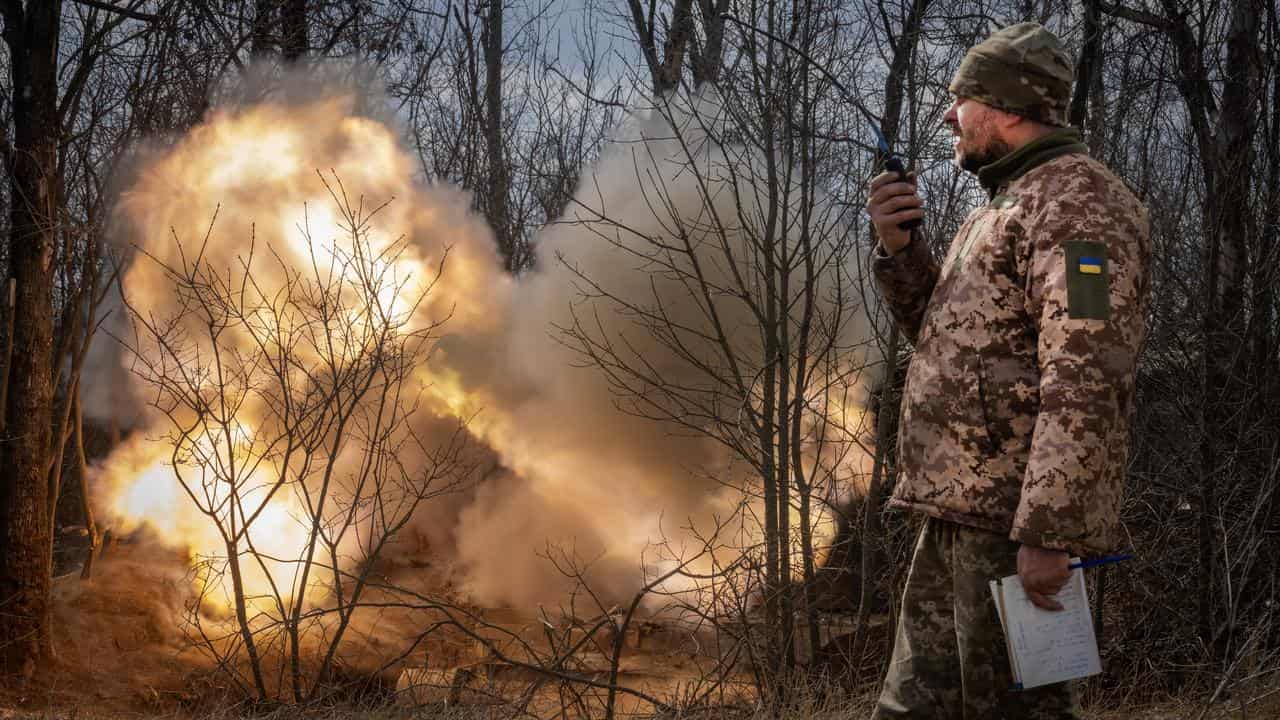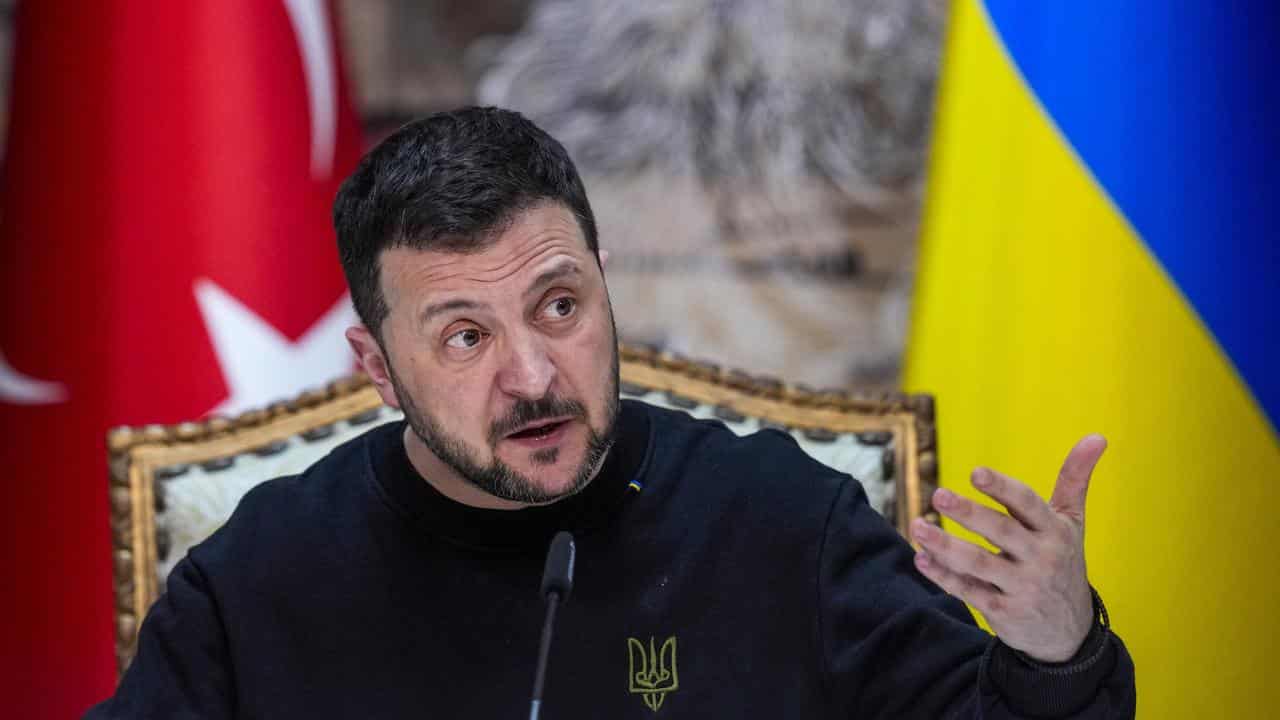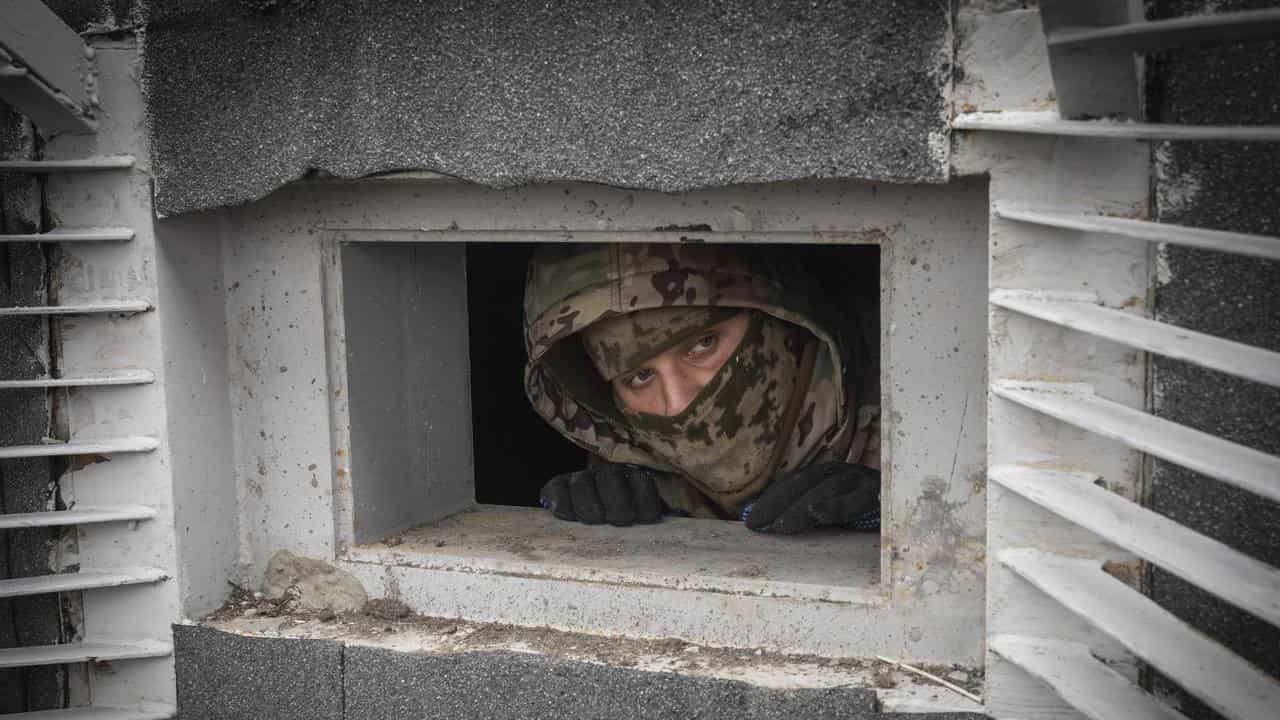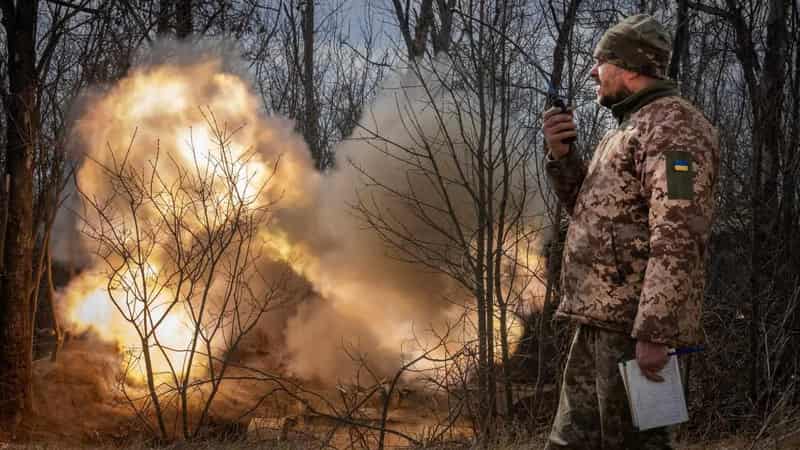
President Volodymyr Zelenskiy has sacked the secretary of Ukraine's national security council and replaced him with the head of his foreign spy agency in a shake-up that follows the overhaul of the military high command last month.
No reason for the changes was given in a series of dryly worded decrees that were published on the president's website more than two years into Russia's full-scale invasion.
Oleksiy Danilov, the outgoing secretary of the National Security and Defence Council, had held his position since October 2019, just months after Zelenskiy took office.
Zelenskiy appointed Oleksandr Lytvynenko, 51, head of the foreign intelligence service, who has no almost public profile whatsoever, to head the council.
The council has a co-ordinating role on issues of national security and defence under the president and comprises the country's top political, security and defence chiefs.

Ukraine is battling to keep up its war effort and hold the line against attacking Russian forces in the east with its vital US ally proving unable to deliver military assistance due to Republican congressional opposition.
Military analysts are also raising questions about the depth and strength of Ukrainian fortifications and regard manpower levels as another challenge.
Russia has a much larger population than Ukraine and is on the offensive.
Zelenskiy's decrees named Oleh Ivashchenko, a deputy chief of the Ukrainian military spy agency who also has no public profile, as the new foreign intelligence chief.
The Ukrainian leader replaced the head of the armed forces in February.
Swathes of the military's top brass were also cleared out and replaced.
Ukraine's navy said on Tuesday a Ukrainian missile attack struck a Russian naval reconnaissance vessel and a large landing warship that Russia captured from Ukraine during the annexation of the Crimean peninsula in 2014.
Ukraine hit the vessels during an attack on Crimea at the weekend, the navy said.
The fact of that strike was already known but the military had said it hit two other warships, the Azov and Yamal large landing ships.
The navy said the Konstantin Olshansky large landing ship was struck with a Neptune anti-ship missile, sustaining damage that Ukraine was still assessing.

"Currently, this ship is not combat-capable," navy spokesman Dmytro Pletenchuk said on television, adding that the Ivan Khurs reconnaissance vessel had also been hit.
There was no immediate comment from Russia.
Russia's Black Sea Fleet has suffered a string of blows as Ukraine has picked off warships and even a submarine with naval drones and missiles.
Earlier this month, Russia confirmed the appointment of a new head of its navy in what was seen in Ukraine as tacit acknowledgement of the success of their naval attacks even though Ukraine does not have any large warships of its own.
The Konstantin Olshansky, then a Ukrainian warship, was captured by Russia along with much of the Ukrainian navy in 2014 when the Kremlin's troops seized control of Crimea, the traditional base of the Black Sea Fleet.
Russia cannibalised the vessel for parts for other landing ships, Pletenchuk said.
But Ukrainian strikes on large landing ships created a shortage and forced the Russian navy to prepare the ship to be brought back into service over the past year, he said.
"It had gone through a renovation and was being prepared for use against Ukraine, so unfortunately the decision was taken to strike this (ship)," he said.
He added that a Ukrainian-made Neptune anti-ship missile was used for the strike.
"Out of 13 (large landing ships), four have been destroyed, four are being repaired, and five are in working order," he said.
Ukraine controls several hundred kilometres of Black Sea coastline despite Russian occupation of some of its southern regions.









